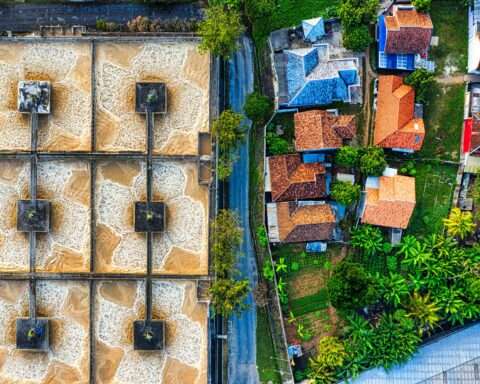San Diego County supervisors unanimously adopted a new budget on June 24, creating procurement opportunities across the infrastructure, technology, housing and public safety sectors in fiscal year 2025-26. Taking effect July 1, the $8.63 billion budget represents a 1.2% increase over the previous year.
The budget continues to fund county priorities such as environmental sustainability, public safety, behavioral health, infrastructure and housing.
The county is prioritizing housing and homelessness prevention, dedicating $132.1 million to expand affordable housing and support vulnerable residents. The county set aside an additional $29.4 million for building inspections, plan reviews and efforts to streamline new housing development.
Behavioral health services are also receiving a boost, with $22.9 million allocated for capital improvements to enhance adult care facilities. The sector will also see $6.9 million directed toward a major renovation at the Polinsky Children’s Center, including a new 16-bed residential facility that will provide short-term crisis services for children.
Public safety investments include $3 million for a temporary workspace while construction of a new Sheriff’s substation is underway. The county also plans a new Resource and Reentry Hub to support formerly incarcerated people while they reintegrate into society.
Infrastructure projects will receive significant funding, with $48.3 million going toward road safety upgrades. This includes new traffic signals, curb ramps, pedestrian crossings, guardrails, sidewalks and bike lanes. The county is also boosting road maintenance spending by $5.7 million, bringing the total to $71.3 million for its 2,000-mile road system.
Another major portion of the budget is dedicated to facility upgrades. The county plans $29 million for Sheriff’s jail improvements, focusing on new fire alarm systems, security equipment and updated technology. Other facility investments include $9 million for the East Mesa Juvenile Detention Facility and $1.5 million for a new fire training tower.
Several new construction projects are in the pipeline. The county will rebuild the Mira Mesa Epicentre as a community center, with an opening planned for fall 2026. A new Casa de Oro Library is set to open in spring 2026.
Environmental sustainability efforts will see major investment, with $23.6 million dedicated to watershed protection and green infrastructure projects. The county is also spending $4.1 million on electric vehicle charging stations, including public charging sites and fast chargers for county vehicles in rural locations.
Additional environmental initiatives include $1.3 million for Tijuana River Valley improvements, focusing on dredging and habitat restoration work. The county will fund tree planting across county properties with $1 million to plant 2,000 trees to help reduce greenhouse gas emissions. The Climate Action Plan will receive a $1.6 million funding increase, bringing total implementation spending to $4.1 million.
The county is making investments in public health infrastructure, including funding for a new $93 million state-of-the-art laboratory designed for infectious disease testing. The budget allocates $267.3 million for disease prevention efforts, covering public health centers, home visiting programs and pharmaceutical services.
The budget takes effect July 1, with procurement opportunities expected to ramp up quickly across multiple sectors. County officials said they will continue monitoring potential federal funding changes that could affect future spending plans, but the current budget provides a foundation for the county’s ongoing efforts.
Photo by Lucas Fonseca from Pexels













